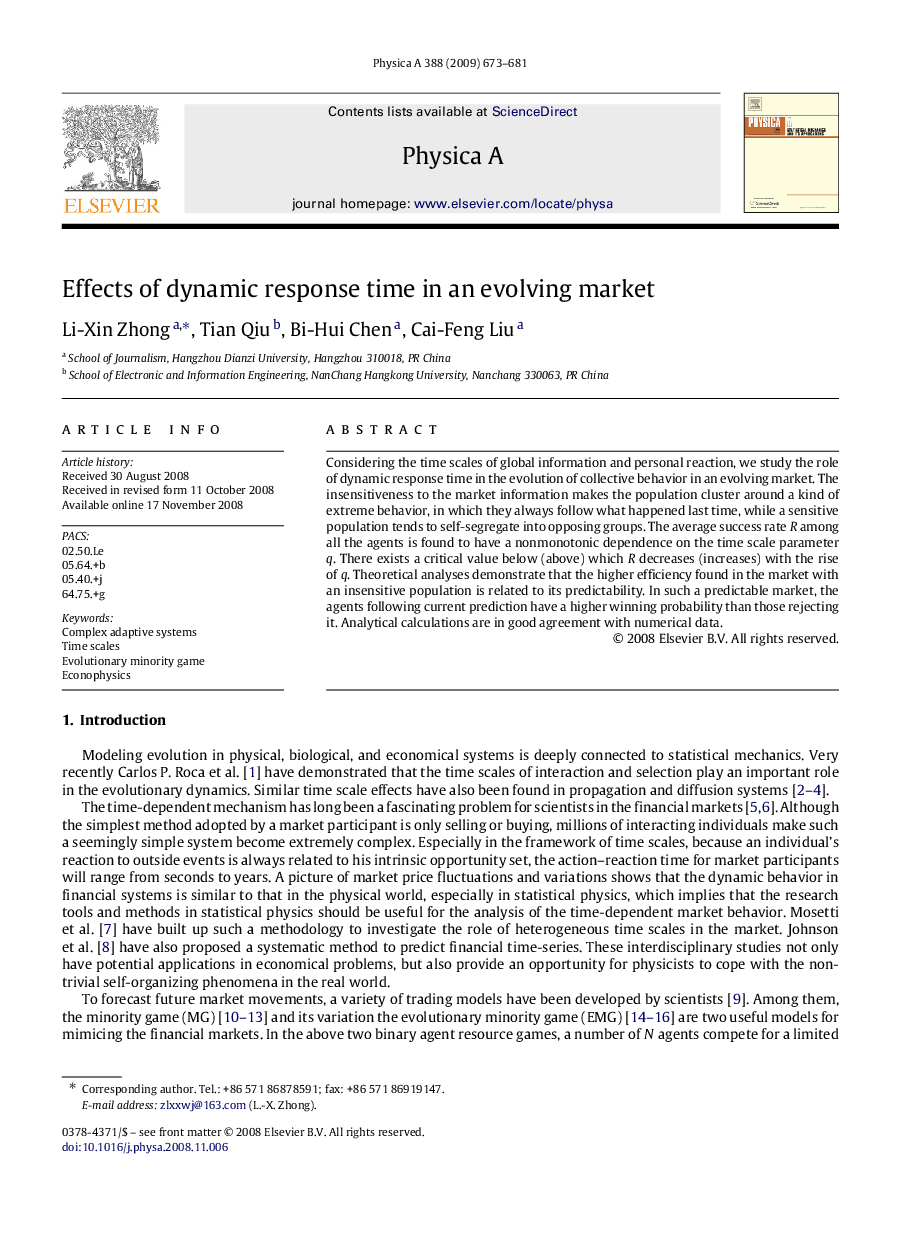| Article ID | Journal | Published Year | Pages | File Type |
|---|---|---|---|---|
| 978664 | Physica A: Statistical Mechanics and its Applications | 2009 | 9 Pages |
Considering the time scales of global information and personal reaction, we study the role of dynamic response time in the evolution of collective behavior in an evolving market. The insensitiveness to the market information makes the population cluster around a kind of extreme behavior, in which they always follow what happened last time, while a sensitive population tends to self-segregate into opposing groups. The average success rate RR among all the agents is found to have a nonmonotonic dependence on the time scale parameter qq. There exists a critical value below (above) which RR decreases (increases) with the rise of qq. Theoretical analyses demonstrate that the higher efficiency found in the market with an insensitive population is related to its predictability. In such a predictable market, the agents following current prediction have a higher winning probability than those rejecting it. Analytical calculations are in good agreement with numerical data.
